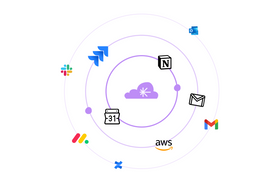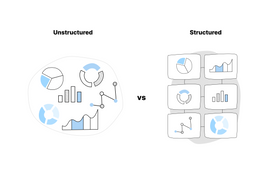The Future of Search: Machine Learning and Personalization [2023]
Updated May 15, 2023

Machine learning, a subfield of computer science and artificial intelligence (AI), uses algorithms and data to mimic human learning, thereby improving accuracy over time. It's a widely-used technology for identifying patterns and predicting future occurrences based on historical data.
As such, it helps people make sound decisions based on data-based insights. For example, it is often used to inform marketing decisions based on current market demand or to sort through large amounts of data and identify patterns in user behavior.
Search engines like Google, Yahoo, and Bing continuously evolve to provide better user experiences, with machine learning significantly impacting search engine optimization (SEO) and personalization.
Machine Learning in Search Engines
Moz founder Rand Fishkin believes that the shift toward AI and machine learning in search will continue to lead toward more personalized search results that are better rooted in data and machine learning.
Ultimately, an effective machine learning search engine can carry out several functions in the context of search engines. These include:
- Identifying relevant content automatically: By examining user behavior, machine learning identifies patterns and promotes matching content to deliver pertinent search items.
- Understanding user query intent: Machine learning can "understand" when a user wants to access information, buy something, or complete a task.
- Natural language processing: Machine learning can improve unclear queries or correct misspelled or inaccurately described search terms based on data and other users' behavior.
- Personalizing results: Machine learning personalizes content for users by capturing signals such as typical search queries and clicks, providing unique experiences through user recommendations.
- Detecting patterns: Search engines use machine learning to identify low-quality content such as spam and duplicates, weeding out irrelevant results and making the search process easier for users.
- Identifying new ranking signals: Google's machine learning algorithm helps identify potentially new ranking signals or markers that will help improve the quality of search results moving forward.
- Supplementing search technology: Machine learning isn't the only thing determining what comes out on SERPs (search engine results pages)—but it works well to supplement existing technologies and human developers' efforts to improve ranking signals and refine search.
- Image search: With machine learning, it's now possible to analyze and catalog hundreds of millions of photos uploaded to the web every day, allowing users to search for images using keywords or phrases.
- Synonym identification: Google's machine learning algorithm can identify synonyms, meaning that if a user queries "best running shoes" and another user has used the term "best running sneakers," Google will recognize both phrases as related.
✶ Find out how to speed up knowledge graph construction with ML
Machine Learning in Google Search
Google has always been at the forefront of developing search algorithms and still uses machine learning to optimize its search engine results. When a user starts typing something in the Google search box, for instance, the engine anticipates what they are looking for and instantly provides suggestions based on past searches, trends, or a user's current location.
Google image search also uses machine learning to provide users with personalized experiences by presenting them with more relevant images.
Did you know?
Google introduced RankBrain, an AI, in 2015 and has since continued to deploy AI and machine learning to refine search processes, incorporating neural matching, BERT, and MUM. Google also ranks websites based on quality, protecting users from spam or fraudulent sites.
Supercharge Your Search With Unleash
The future of search will be increasingly influenced by machine learning. Search engines continuously strive to deliver more personalized experiences, with machine learning being crucial to achieving this.
If you're looking to supercharge how you search for things within your organization, Unleash is a powerful search tool that uses machine learning to make searching effortless and efficient. Its simple, intuitive, easy-to-use interface can quickly search through every folder and application on your computer, helping you maximize your productivity.





